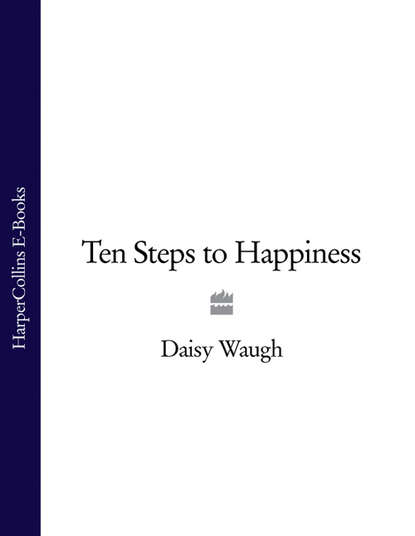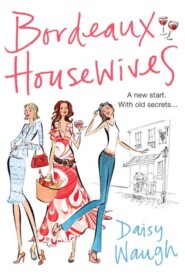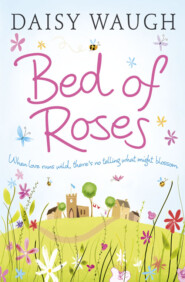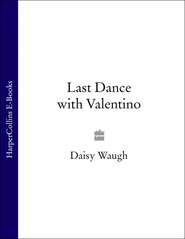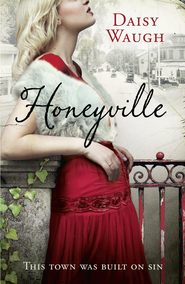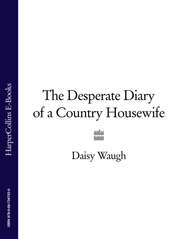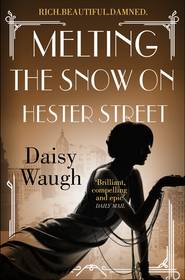По всем вопросам обращайтесь на: info@litportal.ru
(©) 2003-2024.
✖
Ten Steps to Happiness
Автор
Год написания книги
2018
Настройки чтения
Размер шрифта
Высота строк
Поля
She opened the door to the drawing room, since it was ‘nearly drinks time’, and invited the calves to come in. They followed her, the way calves do. The children had fetched bowls of milk from the kitchen, and the five of them had stood about beneath the portraits of disapproving soldiers, while Mrs Maxwell McDonald conducted a jolly conversation with all of them, exactly as if she had been entertaining the local vicar. Charlie and Georgie thought it was the most topsy-turvy thing they’d ever seen. They thought they would die from laughing. And the calves had looked so sweet and confused in the middle of that big drawing room, and their mother had looked so happy. It was one of the last memories they had of her before she fell ill. She must have died less than a year later…
Charlie looked out of the library window over the frozen hills to where the village lay, and the church, whose tower he could see, and the churchyard where his mother and sister lay side by side…He looked back at the lilac-coloured penpusher, with his measly lilac-coloured grin.
‘Nasty surprises?’ he said coolly. ‘At Fiddleford? Certainly not.’
The Ministry vet checked in with Jo and Charlie at the end of the same day. He’d not completed his inspection yet, he said, and he would be back first thing in the morning to finish off.
‘No signs yet, though,’ he said. ‘So fingers crossed.’
It gave them false hope. They all four drank too much that night. And then in the morning the vet returned and within minutes he’d found one of the heifers was limping.
She could have trodden on a sharp stone. More than likely, she had trodden on a sharp stone. Or one of the other cows might have kicked her. Or she’d woken up feeling stiff. It could have been any number of things. But the people from the Ministry weren’t willing to take the risk. Later that night came the official confirmation. There would be no need to take further tests. The limp was evidence enough. Death warrants had been signed and the slaughtermen were booked for Wednesday morning.
Since then, time for everyone at Fiddleford had been passing abnormally slowly. Jo wandered the house with her notebook, making obsessive and pointless notes about facilities which might be required for her future paying guests. Grey and the General, for lack of tabloid newspapers to argue over (their favourite – almost their only – pastime for several months now), were reduced to watching housewives’ television. Charlie, meanwhile, dealt with the animals, the farm workers, and the people from MAFF.
On Monday evening he telephoned the Ministry to inform them that the heifer’s limp had disappeared. On Tuesday evening he called again to inform them there were still no signs of infection among any of the other animals. But it was too late. That night the last of the animals were herded together into outhouses. The pyre was already built, and the sheep crushes and the cattle stocks lay waiting.
The snow turned to sleet that evening, and a cruel wind blew. Grey McShane, in a futile attempt to lighten everyone’s spirits, had lit a fire in the dining room. There was no food in the house, since the garden was covered in three feet of snow, and nobody was allowed out to go shopping. But Grey found an ancient tin of spaghetti at the back of the larder, which he plopped into a saucepan and burnt and then, with absurd fanfare, carried through to the dining room.
He doled out a plateful to Jo, who looked at it for several minutes and then suddenly leapt from her chair and ran out of the room. Charlie found her vomiting over the kitchen sink.
‘Are you all right?’ he said.
‘I’m fine. Completely fine. You go back in.’
‘Was it the spaghetti, do you think?’
She laughed.
‘Oh Christ, Jo, I’m so sorry. This must be awful for you.’
‘It’s fine. Please. Never mind me. I’m fine…I’m fine.’
‘We could get a licence and you could go and stay in London until it was over.’
‘Certainly not!’ She made an effort to smile, but the smile turned into a retch. ‘Oh, God—’ She retched again. ‘I think I’ll go upstairs.’
Jo ran to her bedroom and only just reached the basin in time. She stood there for a while, recovering, thinking, examining the splashes of vomit at her lovely, Mexican-tanned feet. She straightened up, wiped her mouth and, before she could change her mind yet again, headed over to the wardrobe and pulled out the testing kit which had been languishing there, driving her crazy, since the day before the MAFF people first called.
Afterwards she didn’t quite know what to do. Call her mother? No. Anyway she was away in El Salvador, taking artistic holiday snaps. Burst in on Charlie – and Grey and the General – in that freezing cold dining room? Definitely not. Have a bath?
There was no hot water for a bath. She decided to go straight to bed. She took off her uncomfortable urban clothes (skintight jeans @ £125, stripy cashmere jersey with pointless zip and hood), which were so incredibly ineffective in her new rural life, and replaced them with a pair of pyjamas and every jersey she could find in Charlie’s cupboard.
She lay awake for what felt like hours after that, trying to persuade herself it was real, trying to feel what she was meant to feel – fulfilled and magical and womanly and blessed, trying not to feel terrified of how her life, which until she met Charlie had always been so painstakingly well structured, seemed so quickly to be slipping out of her control. But then somehow she must have fallen asleep because she woke with a start at about three o’clock to discover that Charlie still hadn’t joined her.
Out on the icy landing she could find no sign of him either. The house was quiet. The vast, stone-floored entrance hall beneath her was shrouded in black. She bent over the banister and thought she saw a faint crack of light coming from beyond the back lobby, and then suddenly, from the same direction, she heard the muffled sound of something large crashing to the ground.
‘…Charlie?’
The house was old – especially the back part, the part where the noise was coming from. Among her many strengths (her warmth, her determination, her well maintained contacts book and, though she felt far from beautiful that night, her delicate elfin good looks), Jo was a practical woman, not remotely given to superstitious anxieties. But she was terrified.
‘…Charlie?’
No response, just a distant shuffling, followed by a long, low moan.
‘…Charlie!’
Slowly, carefully, in almost total darkness, she followed the sound as far as the back lobby, where she paused for a moment. She could hear breathing very clearly now: heavy, quick-fire, phlegmy breathing, like a sleeping giant. The back lobby led on to the kitchen, and beyond that to the pantry and the boot room, and from there to the stairs which went down to the cellars. The thin stream of light was coming from the cellars, somewhere Jo and her notebook had not bothered to venture before.
Tentatively, she walked down the steps and found herself in a large, dank room cluttered with what looked like pieces of rotting furniture. There was a room on either side of her, both of them in darkness, and in front of her, a miserable, decaying corridor. She could hear the noises coming from beyond it: the breathing, someone hammering and then Charlie, ‘It’s OK, girl. It’s OK. Take it easy. Just a bit of noise. I’ll be done in a sec.’
Which was when she finally saw them. Dwarfing the corridor and the small room at the end of it, dwarfing Charlie: two old Highland cows, covered in cobwebs and flakes of rotting paint, puffing after their strange exertions.
Charlie looked up. ‘Jo!’ he said. ‘It’s—How are you? I thought you were asleep.’
‘What the fuck are you doing?’ she asked.
‘What? Me? Nothing.’
‘Nothing?’
‘Shh! You’ll frighten the girls.’
‘The girls?’ Gingerly, to ensure that she wasn’t dreaming, she edged forward and put out a finger to touch one of them. It responded with a friendly grunt and by wiping its damp nose on the sleeve of her outer jersey. She snatched her hand away quickly. ‘Charlie, they’re not girls, they’re cows. What are they doing in the cellar?’
‘Jo…You’re wonderful.’
‘What?’
‘I’m just saying—’ He hesitated. ‘This has nothing to do with you.’
‘Are you hiding them?’
‘Please. Mind your own business.’
‘What if they’re infected?’
‘They’re not infected. They’ve been nowhere near any other farm animals for almost twenty-five years. But I’m going to let them work out their quarantine down here, just to be sure.’
‘Don’t be ridiculous, Charlie. We’ve got to get these cows back in the shed where they belong—’
‘They’re not going anywhere.’
‘Apart from anything else it’s not—I mean they’re probably not going to make it through the winter anyway. It’s not worth it.’ Charlie glared at her and, without another word, turned back to his hammering. He was trying to fix a plank over a large air vent, but every time he hit the nail, chunks of wall fell out. She watched him for a while. ‘I’m sorry. I don’t mean to be—’ She paused to think of the right word, but all she could come up with was ‘realistic’. She decided not to fill the gap.
‘You must be freezing,’ he said over his shoulder.
‘I’m fine, Charlie, my darling. That’s not really the point.’





